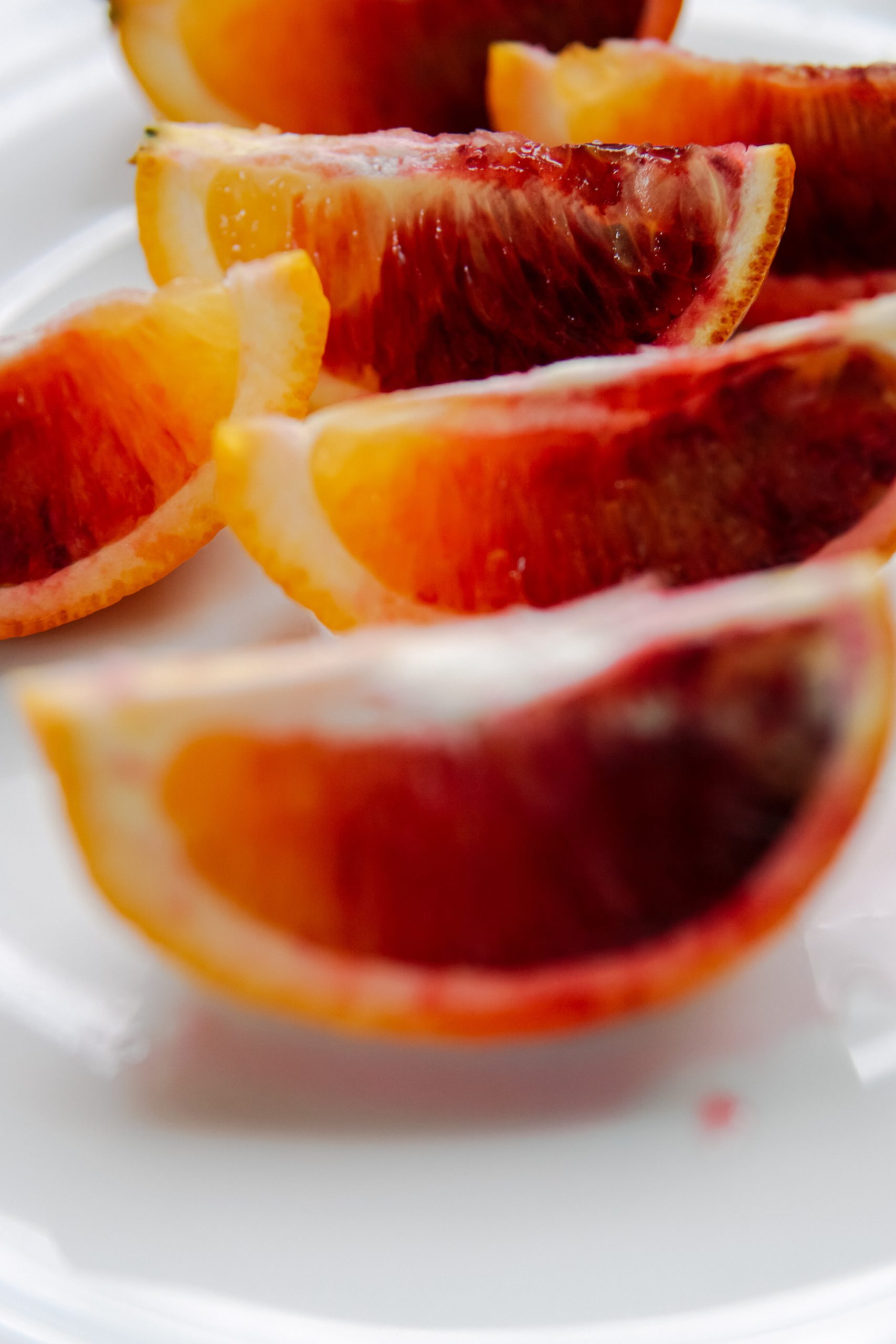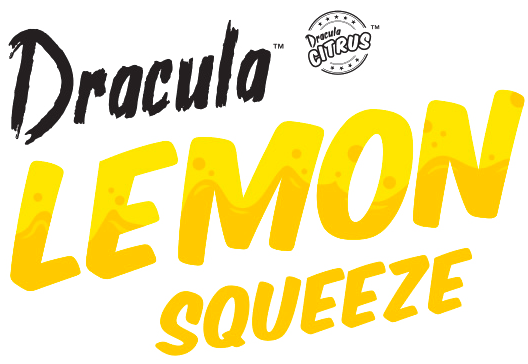Are Blood Oranges Good For You?
Everybody knows that citrus fruits pack a healthful punch. Delicious tasting and loaded with vitamin C, oranges, in particular, have been the go-to natural remedy for every parent of a sniffly kid for generations.
Most people are familiar with the more common orange varieties, such as Navels and Valencias. But what about Blood Oranges? How do they stack up in the health and nutrition department?
The answer will surprise and intrigue you. Blood oranges are essentially the LeBron of the citrus world – taking the healthy game to a totally new level.
In this blog you will find out;
- Everything you need to know about Vitamin C
- What the heck are Anthocyanins and why are they so good for you
- What exactly are free radicals and why they are so nasty.
- What blood oranges have in common with carrots
- A bunch of other wonderful ways that blood oranges are good for you Curious to find out more? Read on and all will be revealed!
Let’s See What We Can C
Known to its closest friends as ascorbic acid, vitamin C is water-soluble, which means that your body doesn’t store it like it does some other vitamins. How can we put this delicately…what your body doesn’t use right away comes out in your pee. Why is that important? It means that you need to regularly replenish your supplies by eating C-rich foods every day.
It’s become ingrained in our psyche that vitamin C is good for us and helps to ward off colds. However, how does it work, and is that all it can do?
How Does Vitamin C Help Fight Colds?
Your body’s primary weapon against infections of all kinds is white blood cells (call them leukocytes if you want to sound über intelligent at parties). These hardy soldiers roam the byways of your body searching for enemy insurgents to eliminate.
You know the saying “an army marches on its stomach”? This is also the case for your leukocyte legions. In times of infection or stress, they’re so busy that they rapidly burn through their stores of vitamin C. This makes them sluggish and reduces their bug-busting capabilities. Adding more vitamin C to your diet helps to keep your white blood cells fast and deadly, and your immune system strong.
What Else is Vitamin C Good For?
We’re so glad you asked. Vitamin C delivers a host of other health benefits that you may not be as familiar with:
- It Helps With Wound Healing: Our multi-talented friend promotes the production of collagen – the primary ingredient in your body’s connective tissue (tendons, ligaments, cartilage), and also a critical component of skin, blood vessels, the gut and even muscle. When any of these tissues are damaged or torn, the increased levels of collagen help them to repair more quickly and efficiently
- It Helps the Body Absorb Iron: Rejoice Vegans and the Anemic! Ascorbic acid bonds with nonheme iron (the kind found in plants) and helps it to better survive the acidic conditions in your small intestine. This means more iron is able to be absorbed into your bloodstream. Best of all, no animals were harmed in combating this nutritional deficiency!
- It May Help Diabetics: A 2019 Australian study found encouraging evidence that taking a vitamin C supplement helped people moderate their glucose levels after eating. While far more research is necessary, it is a promising sign for a potential treatment for diabetes.
- But wait, there’s more! Studies have linked vitamin C as potentially helping overcome a range of other afflictions, ranging from motion sickness and cataracts to allergies and heart disease.
One medium-sized blood orange will provide the average adult with 60-70% of their daily requirement of vitamin C. This is roughly equivalent to any other orange variety. However, with a rich, zesty flavour, delicate texture and beautiful packaging, wouldn’t you rather get your daily dose from a blood orange? We think so too!
Blood Oranges are High in Antioxidants
You can barely turn on your TV without being bombarded with commercials touting the next Super Food’s “powerful antioxidant properties”. If you’re like me you nod your head wisely, all the while wondering what in tarnation antioxidants are, and why they are lauded as the answer to so many of our health woes. Relax, we’ve done the research for you and we’ll try to break it down as clearly as we can.
Put simply, antioxidants help to neutralise nasty little suckers called “free radicals”, stopping them from damaging our healthy cells.
Okaaaaaaay… But What Are Free Radicals?
No, they’re not fugitive Bolivian revolutionaries that have managed to evade capture by hiding in the Andes. Although it would be kinda cool if they were.
Bear with me here, as this will get a little technical:
We all know that our bodies need oxygen to survive, right? Well, oxygen is not the most stable molecule going around, and it can sometimes split into single atoms. When this happens, our little atomic friends lose an electron, making them unstable – They have become… Da Da DUM… A free radical.
Nobody likes to be lonely, and electrons are no exception. The free radicals try to fill the emotional void by attaching themselves to random healthy molecules. Unfortunately, like too many ill-advised rebound hookups, this goes horribly wrong and results in a toxic relationship, which biologists call “oxidative stress”.
When we’re young, our bodies are pretty good at spotting free radicals and fending them off before they hurt us. As we age, we gradually lose the ability to fight free radicals and they inflict more and more harm on our bodies. This causes the symptoms of ageing (wrinkles, greying, hair loss, etc.), as well as a wide range of ailments such as Alzheimer’s, heart disease, arthritis, diabetes, Huntington’s disease, Parkinson’s and, most ominously, cancer.
Unfortunately, unlike the real-life dating scene, free radicals are not as simple to avoid as swiping left. You need a little bit of help as time goes by, which brings us to…
Now Can You Tell Me What Antioxidants Are?
Yes, we can!
By now you’ve probably joined the dots and realised that antioxidants are the antidote to oxidative stress. These knights in shining armour of the biomolecular world are there to lend a supportive shoulder and a spare electron to the broken free radicals and neutralise their destructive tendencies.
The best part is they do this without becoming unstable messes themselves. Yep, the once wild free radical and the gallant antioxidant join electrons and wander off into the sunset to live happily ever after. Awwww.
Now you can understand all the hype about antioxidants. By stopping all those unmentionable nasties in their tracks, they are a potent force for health, longevity and a youthful look.
But What Does This Have To Do With Blood Oranges?
Another great question!
You don’t have to be a genius to realise that blood oranges get their name from the beautiful red colour infused into their flesh. Well, it turns out that this stunning sunset hue is caused by a miraculous little group of plant pigments called anthocyanins. Although these sound like something that our mate Dracula might slip into his next victim’s margarita, they are, in fact, one of nature’s most potent antioxidants.
You know all those studies that suddenly turned drinking red wine and scarfing chocolate from a vice to a health strategy (What!? I’m getting my dose of ANTIOXIDANTS, OK?) What those researchers (bless all ten of their tiny toes) found was that these yummies contain the very same anthocyanins that blood oranges have in spades.
The good news is that our fruity friend delivers at least as much antioxidant punch without the calories – or the morning-after headache. Maybe we’re biased, but we also happen to think that they’re even more delicious!
Do Blood Oranges Have More Antioxidants Than Regular Oranges?
This is where blood oranges really come into their own. If there was an Olympics for antioxidants, our beautiful red and orange heroes would almost certainly top the medal tally.
The high concentration of anthocyanins in blood oranges deliver nine times the antioxidant punch of navels. To put that into perspective, you would have to eat an entire bag – about 4.5 pounds – of navel oranges to receive the same impact as a single blood.
Anthocyanins are also found in high concentrations in other fruits such as cherries, blueberries and pomegranates. However, if you’ve spent any time at a specialty fruit store, you will know that the monthly GDP of a small developing nation is often required to purchase these delicacies. Blood oranges, by comparison, are relatively more affordable, making them pound-for-pound one of the most cost-effective sources of high-power antioxidants around.
So, put away your corkscrew, step away from the Cadbury’s Bar and grab yourself some blood oranges! You won’t regret it.
Blood Oranges Are High in Vitamin A
Vitamin A is an essential nutrient that is important for ensuring strong vision, bolstering the immune system, healthy reproduction and regular function of crucial organs like the heart, lungs, liver and kidneys.
You may be familiar with the common form of vitamin A that is often found in fruits and vegetables – beta carotene. As the name suggests, this is the same nutrient that gives carrots their well-deserved rap for being good for your eyes. That’s right, Bugs Bunny could just as well have been sinking his overgrown front teeth into an orange.
Most people are able to get enough vitamin A from a regular diet. However, infants, young children, pregnant and breastfeeding women and people with cystic fibrosis may require additional sources, particularly if their diet is inadequate.
If you thought that blood oranges couldn’t get any better for you – think again. They contain double the amount of vitamin A of the more common orange varieties. Once again, bloods are simply in a league of their own!
Blood Oranges Have a TON of Other Health Benefits
So many health benefits – so little time. If you’re not yet convinced of the mind-blowing goodness of blood oranges, we can assure you that the list does not end there. Let’s take a look at a number of other ways that the delectable, delightful Doctor Blood is wonderful for your body:
- They may contribute to a healthy pregnancy: Oranges contain folate, which is well known to be a vital nutrient that helps prevent birth defects and promotes healthy neural growth in developing fetuses. Expecting moms are routinely advised to eat folate-rich foods during pregnancy, or take supplements. All citrus contains high levels of folate. Depending on the variety, blood oranges may contain up to 10% more than other oranges, making them a welcome addition to any prenatal diet.
- They may assist with weight loss: Blood oranges are low in calories, have virtually no fat and contain on average 3g of dietary fibre. The fibre passes through your gut very slowly, making you feel full longer and helping to curb the hunger pangs and tendency to reach for the snack jar.
Some people are hesitant to add too much fruit to their diets due to the carbohydrate content – essentially from sugar. However, these sugars, when combined with the high fibre content, mean that blood oranges actually have a very low glycemic index (around 30-50). In English, this means that rather than get an immediate sugar burst, much of which may not be burned and therefore stored as fat, the energy from blood oranges is released slowly so your body can process and use it more efficiently.
Numerous studies have shown strong evidence that consuming citrus can assist with increased weight loss over time.
- They are easier on your tummy: Bloods have a slightly lower acid content than regular oranges. People with acid reflux or other intestinal issues may find blood oranges somewhat easier to stomach than other varieties.
Conclusion – Blood Oranges Are SO Good For You
Blood oranges not only look magnificent and taste divine – they are also incredibly good for you. With a range of powerful nutrients in such a small, attractive package, is it any wonder that Dracula Citrus™ Blood Oranges are rapidly growing in popularity right across the USA, Australia and elsewhere?
Dracula’s Blood Oranges are grown under the glorious Australian sun. The great thing about growing upside down on the other side of the world is that they ripen and reach American shores right in time for Halloween!
If you’re looking for a spooky, but healthy alternative to endless piles of candy this Halloween, Dracula Citrus™ Blood Oranges are just the ticket.
So what are you waiting for? When in season (June through September!), Dracula Citrus™ blood oranges are available at ALDI stores Australia-wide, so everyone can have access to the spectacular antioxidant-infused goodness of blood oranges wherever they are.
Happy eating!!
Note: the views and information expressed here should not be viewed as professional health advice. While we have sourced our information from credible sources and studies, please consult with your doctor or a registered dietitian for more information about your dietary requirements








